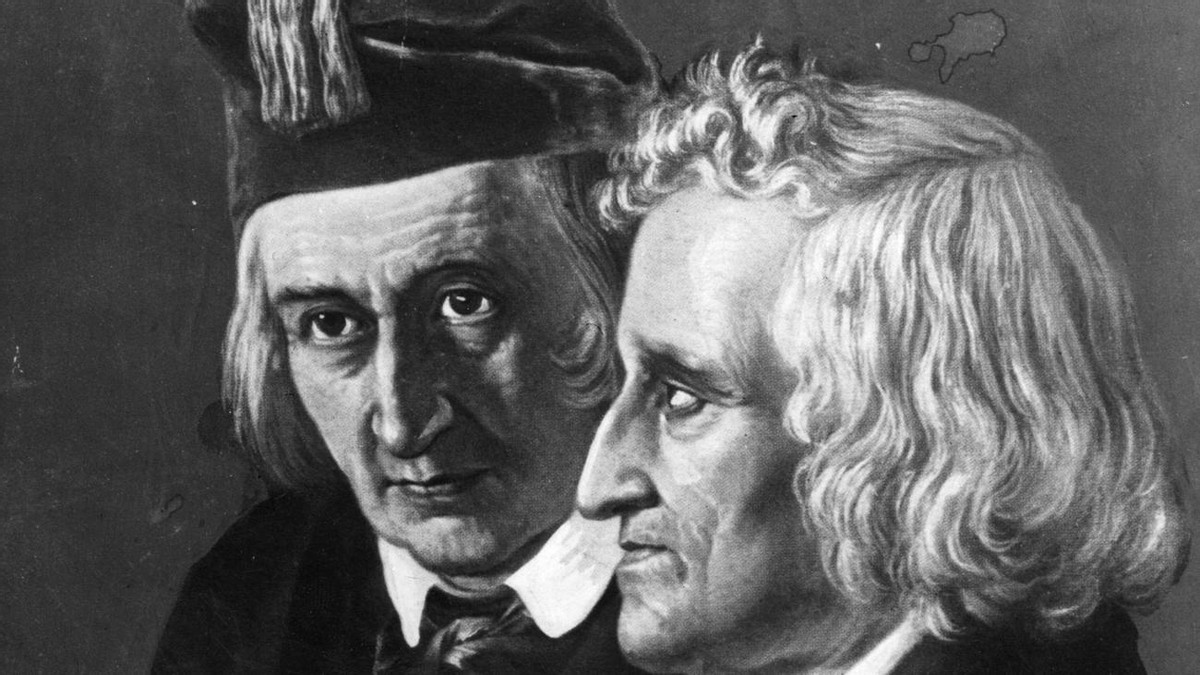
Learning German with Grimm fairy tales actually can be a massive boost to your language learning given that you like the old stories collected by the famous brothers Grimm. There are of course some concerns about the language used in at least the original 19th century versions but also about the practicability of the vocabulary. Being completely honest, that is indeed a fair concern. Having said that, let us talk about the upsides: Simple language with few adjectives, a lot of still common proverbs and entertaining, comprehensible stories that you probably already know. I'll add the fact that you have a lot of quantity, so going through all the Grimm fairy tales sounds like a big study project.
But did you know that some of the less known fairy tales were extremely short? One of the tiniest, maybe the shortest of all fairy tales published by the brothers is called Das eigensinnige Kind what freely translated would be the stubborn child. In this brief excurse I want to introduce you to the language of the Grimm Brothers and maybe you'll even learn some German.
Here a bilingual version: https://www.grimmstories.com/language.php?grimm=117&l=de&r=en
In the following, though, I will quote from the original 1815 version you can access on at Wikisource. The title of this version is "Von einem eigensinnigen Kinde." with the archaic -e at the end of Kind that we use with the dative case to make things sound more poetic like in the movie title "Vom Winde verweht" (Gone with the Wind).
"Es war einmal ein Kind eigensinnig und that* nicht was seine Mutter haben wollte."
So for all the folks who are new to German fairytales: "Es war einmal" is like German fairytales normally start, it's our "Once upon a time".
* that = tat in modern German, it's pronounced the same.
"Da hatte der liebe Gott kein Wohlgefallen an ihm und es ward** krank, und kein Arzt konnt’ ihm helfen und bald lag es auf dem Todtenbettchen."
The awful moralistic storytelling is fortunately no more a standard but to understand German history it has to be mentioned that this kind of narrative was very common and the Germans were known to punish draconically nasty children in their fairy tales. I highlighted the connectors to show how easy structured this rather poor sentence is. I say poor but this is how must of us speak. This is pretty close to a spontaneous speaking pattern in oral German. That "god isn't well-pleased with someone" would not necessarily be something a modern German says but it doesn't sound that weird neither. We furthermore see that they shortened the word konnte (could) to konnt', which once more shows that they tried to write as close as possible to the form of German spoken by the people. Cutting the e's at the end of a word indeed is something we do a lot in spoken German (Ich habe -> Ich hab').
* ward = wurde (nowadays ward sound extremely archaic, use it only to impress your literate friends)
"Als es ins Grab versenkt war, und Erde darüber gedeckt, kam auf einmal sein Aermchen*** wieder hervor und reichte in die Höhe, und wenn sie es hineinlegten und frische Erde darüber legten, so half das nicht, er kam immer wieder heraus."
Pretty spooky, isn't it? If you struggle understanding what's going on: the first es is referring to the child (das Kind) and the second es to the arm (das Ärmchen). Ärmchen is the diminutive of Arm. Just to observe a few things for you here:
- All diminutives in German are neuter: der Arm -> das Ärmchen and most famously "das Mädchen" which is the diminutive of "die Magd, a dated form to refer to a young lady.
- Vocals A, U and O turn to Umlaute (Ä, Ö and Ü) when forming the diminutive ***
- Back then it was normal wo write Ae, today we do this only if we don't find an ä on our keyboard. In consequence: Ö -> oe and Ü -> ue
The narration in this sentence is quite clear except the intermitted "und Erde darüber gedeckt" which lacks a "war" which is let out for stylistic reasons. I just give you the opportunity to admire a bit our separable verbs:
- darüberdecken
- hervorkommen
- hineinlegen
- darüberlegen
- herauskommen
The words are long but we just have some basic verbs with direction of motion. Once you got a feeling for this system it's a "Kinderspiel" as we like to say. Our fairy-tale on the other side is no game for children, let's see how it ends:
"Da mußte**** die Mutter selber zum Grab gehen und mit der Ruthe* auf das Aermchen*** schlagen, und wie sie das gethan* hatte, zog es sich hinein und hatte nun erst Ruh unter der Erde."
You imagine reading this to a child from the 21th century? A German child from a wealthy suburb would probably sue you for doing so. So keep cautious with the propagation of this stuff and just use it for language learning purposes. No, for real, I was really shocked when I read for the first time this story. A rod (Rute) was not long ago an instrument used in classrooms and households. The generation 50+ had to endure this sardonic education.
Well, that's all for now. If you have any questions just comment on the German or English text. Maybe I can inspire by presenting texts in your native language through a colloquial and/or grammatical perspective. There is clearly a lot of room for improvements. I hope you enjoyed it.
Peace out!
Hi JulianiTOgo! This fairytale sounds like something I've heard before, but not necessarily because I've actually read the story before but because it has this rhythm of old poems...
Hi JulianiTogo, I really like the idea of this post. The story is indeed very short but also rather sinister. Poor children got this read as bedtime story.